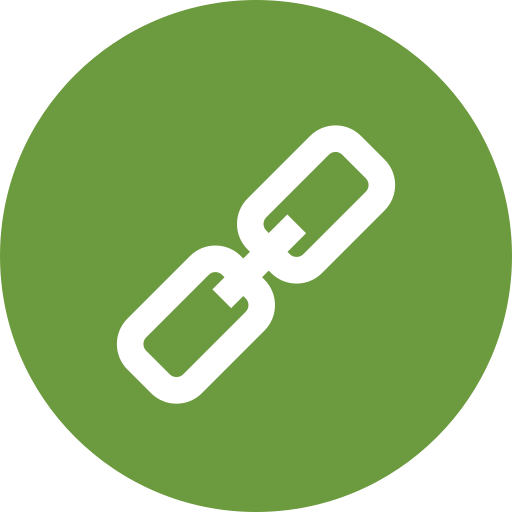| Product name | Per Pill | Savings | Per Pack | Order |
|---|---|---|---|---|
| 30 pills | $2.71 | $81.22 | ADD TO CART | |
| 60 pills | $2.13 | $34.72 | $162.45 $127.73 | ADD TO CART |
| 90 pills | $1.94 | $69.45 | $243.68 $174.23 | ADD TO CART |
| 120 pills | $1.84 | $104.17 | $324.90 $220.73 | ADD TO CART |
| 180 pills | $1.74 | $173.62 | $487.35 $313.73 | ADD TO CART |
| 270 pills | $1.68 | $277.79 | $731.02 $453.23 | ADD TO CART |
| Product name | Per Pill | Savings | Per Pack | Order |
|---|---|---|---|---|
| 30 pills | $2.20 | $66.03 | ADD TO CART | |
| 60 pills | $1.58 | $37.14 | $132.06 $94.92 | ADD TO CART |
| 90 pills | $1.38 | $74.28 | $198.08 $123.80 | ADD TO CART |
| 120 pills | $1.27 | $111.42 | $264.11 $152.69 | ADD TO CART |
| 180 pills | $1.17 | $185.71 | $396.18 $210.47 | ADD TO CART |
| 270 pills | $1.10 | $297.13 | $594.26 $297.13 | ADD TO CART |
| Product name | Per Pill | Savings | Per Pack | Order |
|---|---|---|---|---|
| 30 pills | $2.02 | $60.47 | ADD TO CART | |
| 60 pills | $1.43 | $35.38 | $120.95 $85.57 | ADD TO CART |
| 90 pills | $1.23 | $70.76 | $181.43 $110.67 | ADD TO CART |
| 120 pills | $1.13 | $106.13 | $241.90 $135.77 | ADD TO CART |
| 180 pills | $1.03 | $176.89 | $362.85 $185.96 | ADD TO CART |
| 270 pills | $0.97 | $283.02 | $544.27 $261.25 | ADD TO CART |
| Product name | Per Pill | Savings | Per Pack | Order |
|---|---|---|---|---|
| 30 pills | $1.22 | $36.69 | ADD TO CART | |
| 60 pills | $0.86 | $21.61 | $73.38 $51.77 | ADD TO CART |
| 90 pills | $0.74 | $43.23 | $110.08 $66.85 | ADD TO CART |
| 120 pills | $0.68 | $64.84 | $146.76 $81.92 | ADD TO CART |
| 180 pills | $0.62 | $108.07 | $220.15 $112.08 | ADD TO CART |
| 270 pills | $0.58 | $172.92 | $330.23 $157.31 | ADD TO CART |
| 360 pills | $0.56 | $237.76 | $440.30 $202.54 | ADD TO CART |
Cymbalta, also known as duloxetine, is a prescription medication used to treat various mental health conditions, including depression, anxiety, and fibromyalgia. It belongs to a class of medications known as serotonin-norepinephrine reuptake inhibitors (SNRIs). In this article, we will delve into the different dosages of Cymbalta, including 60 mg, 40 mg, 30 mg, and 20 mg, and provide information on how to purchase them online.
Understanding Cymbalta Dosages
Cymbalta is available in various dosages, each with its own unique benefits and uses. The following table summarizes the different dosages of Cymbalta:
| Dosage | Description | Uses |
|---|---|---|
| 20 mg | Lowest dosage | Mild depression, anxiety |
| 30 mg | Moderate dosage | Moderate depression, anxiety |
| 40 mg | Standard dosage | Depression, anxiety, fibromyalgia |
| 60 mg | Highest dosage | Severe depression, anxiety, fibromyalgia |
Purchasing Cymbalta Online
With the rise of online pharmacies, it is now possible to purchase Cymbalta online from the comfort of your own home. There are several benefits to buying Cymbalta online, including:
- Convenience: No need to visit a physical pharmacy or wait in line.
- Cost-effective: Online pharmacies often offer discounts and lower prices.
- Discreet: Orders are shipped discreetly to your doorstep.
To purchase Cymbalta online, simply follow these steps:
- Choose a reputable online pharmacy: Look for pharmacies that are licensed and certified.
- Select your dosage: Choose the dosage that is right for you, whether it's 20 mg, 30 mg, 40 mg, or 60 mg.
- Place your order: Fill out the online order form and provide any necessary medical information.
- Receive your order: Your Cymbalta will be shipped to your doorstep.
Some popular online pharmacies that sell Cymbalta include:
- Order Cymbalta: A reputable online pharmacy that offers discounts and fast shipping.
- Buy Cymbalta: A licensed pharmacy that sells Cymbalta at competitive prices.
- Generic Cymbalta 60 mg buy online: A pharmacy that specializes in generic medications, including Cymbalta.
Benefits of Cymbalta
Cymbalta has been shown to be effective in treating a range of mental health conditions, including:
- Depression: Cymbalta has been shown to reduce symptoms of depression, including sadness, loss of interest, and changes in appetite.
- Anxiety: Cymbalta has been shown to reduce symptoms of anxiety, including worry, fear, and restlessness.
- Fibromyalgia: Cymbalta has been shown to reduce symptoms of fibromyalgia, including pain, fatigue, and sleep disturbances.
In addition to its therapeutic benefits, Cymbalta has also been shown to have a number of advantages, including:
- Fast-acting: Cymbalta can start to work within a few weeks of taking it.
- Long-lasting: Cymbalta can provide long-term relief from symptoms.
- Well-tolerated: Cymbalta is generally well-tolerated, with few side effects.
Side Effects and Precautions
While Cymbalta is generally well-tolerated, it can cause some side effects, including:
- Nausea: Cymbalta can cause nausea, especially when first starting the medication.
- Headache: Cymbalta can cause headaches, especially when first starting the medication.
- Dizziness: Cymbalta can cause dizziness, especially when standing up quickly.
To minimize the risk of side effects, it's essential to:
- Follow the recommended dosage: Take the recommended dosage of Cymbalta, and do not exceed it.
- Monitor your symptoms: Keep track of your symptoms and report any changes to your doctor.
- Consult your doctor: If you experience any side effects, consult your doctor for advice.
Conclusion
Cymbalta is a powerful medication that can be used to treat a range of mental health conditions, including depression, anxiety, and fibromyalgia. With its various dosages, including 20 mg, 30 mg, 40 mg, and 60 mg, Cymbalta can be tailored to meet the individual needs of each patient. By purchasing Cymbalta online from a reputable pharmacy, patients can enjoy the convenience and cost-effectiveness of online shopping. Remember to always follow the recommended dosage and consult your doctor if you experience any side effects.
Frequently Asked Questions
- Q: Can I buy Cymbalta online without a prescription? A: No, Cymbalta is a prescription medication and requires a valid prescription from a licensed doctor.
- Q: How long does it take for Cymbalta to start working? A: Cymbalta can start to work within a few weeks of taking it, but it may take several weeks to reach its full effect.
- Q: Can I take Cymbalta with other medications? A: It's essential to consult your doctor before taking Cymbalta with other medications, as it can interact with certain medications and increase the risk of side effects.
Recommended Online Pharmacies
- Order Cymbalta: A reputable online pharmacy that offers discounts and fast shipping.
- Buy Cymbalta: A licensed pharmacy that sells Cymbalta at competitive prices.
- Generic Cymbalta 60 mg buy online: A pharmacy that specializes in generic medications, including Cymbalta.
Discounts and Promotions
- Discount Cymbalta uk: Get discounts on Cymbalta when you purchase online from a UK-based pharmacy.
- Cheap Cymbalta on line: Find affordable prices on Cymbalta when you shop online.
- Purchase Cymbalta with mastercard: Get discounts and rewards when you purchase Cymbalta with your Mastercard.
Depression is a complex and multifaceted mental health disorder that affects millions of people worldwide. It is characterized by persistent feelings of sadness, hopelessness, and a lack of interest in activities that once brought pleasure. While depression is often viewed as a solely psychological condition, research has shown that it can have a significant impact on physical health, particularly in individuals with chronic conditions such as diabetes. In this article, we will explore the relationship between depression and peripheral neuropathic pain associated with diabetes, and discuss the ways in which depression can actually relieve these pains.
What is Peripheral Neuropathic Pain?
Peripheral neuropathic pain is a type of chronic pain that occurs when there is damage to the peripheral nerves, which are the nerves that connect the brain and spinal cord to the rest of the body. This type of pain is common in individuals with diabetes, as high blood sugar levels can damage the nerves over time. The symptoms of peripheral neuropathic pain can vary, but may include:
- Burning or shooting pain in the hands and feet
- Numbness or tingling in the hands and feet
- Weakness or fatigue in the muscles
- Difficulty walking or balance
The Relationship Between Depression and Peripheral Neuropathic Pain
Research has shown that there is a significant relationship between depression and peripheral neuropathic pain. Studies have found that individuals with diabetes who experience peripheral neuropathic pain are more likely to also experience depression. This is because the chronic pain and discomfort associated with peripheral neuropathic pain can contribute to feelings of sadness, hopelessness, and frustration, which are all common symptoms of depression.
| Condition | Symptoms | Prevalence |
|---|---|---|
| Depression | Persistent feelings of sadness, hopelessness, lack of interest in activities | 20-30% of individuals with diabetes |
| Peripheral Neuropathic Pain | Burning or shooting pain, numbness or tingling, weakness or fatigue | 50-70% of individuals with diabetes |
How Depression can Relieve Peripheral Neuropathic Pains
While it may seem counterintuitive, research has shown that depression can actually relieve peripheral neuropathic pains in some individuals. This is because depression can lead to a decrease in the production of certain neurotransmitters, such as substance P, which is involved in the transmission of pain signals. Additionally, depression can lead to an increase in the production of certain neurotransmitters, such as serotonin and endorphins, which can help to reduce pain.
There are several ways in which depression can relieve peripheral neuropathic pains, including:
- Reduced pain perception: Depression can lead to a decrease in the perception of pain, as the brain becomes less responsive to pain signals.
- Increased pain tolerance: Depression can lead to an increase in pain tolerance, as individuals become more accustomed to experiencing pain and discomfort.
- Alternative coping mechanisms: Depression can lead to the development of alternative coping mechanisms, such as mindfulness or meditation, which can help to reduce pain and improve overall well-being.
Treatment Options for Depression and Peripheral Neuropathic Pain
While depression can relieve peripheral neuropathic pains in some individuals, it is not a recommended treatment option. Instead, there are several treatment options available that can help to manage both depression and peripheral neuropathic pain, including:
- Medications: Antidepressant medications, such as selective serotonin reuptake inhibitors (SSRIs), can help to manage symptoms of depression and reduce pain.
- Therapy: Cognitive-behavioral therapy (CBT) and other forms of talk therapy can help to address underlying issues contributing to depression and pain.
- Lifestyle changes: Regular exercise, healthy eating, and stress management techniques, such as meditation or yoga, can help to improve overall well-being and reduce symptoms of depression and pain.
Here are some additional treatment options to consider:
- Alternative therapies: Acupuncture, massage, and other alternative therapies can help to reduce pain and improve overall well-being.
- Support groups: Joining a support group can provide a sense of community and connection, which can help to reduce feelings of isolation and depression.
- Mindfulness-based interventions: Mindfulness-based interventions, such as mindfulness-based stress reduction (MBSR), can help to reduce pain and improve overall well-being.
Conclusion
In conclusion, depression is a complex and multifaceted mental health disorder that can have a significant impact on physical health, particularly in individuals with chronic conditions such as diabetes. While depression can relieve peripheral neuropathic pains in some individuals, it is not a recommended treatment option. Instead, there are several treatment options available that can help to manage both depression and peripheral neuropathic pain. By understanding the relationship between depression and peripheral neuropathic pain, individuals can take the first step towards managing their symptoms and improving their overall well-being.
Here are some key takeaways to consider:
- Depression is a common comorbidity in individuals with diabetes, and can contribute to peripheral neuropathic pain.
- Depression can relieve peripheral neuropathic pains in some individuals, but is not a recommended treatment option.
- Treatment options, such as medications, therapy, and lifestyle changes, can help to manage both depression and peripheral neuropathic pain.
- Alternative therapies, support groups, and mindfulness-based interventions can also provide additional benefits and support.
By prioritizing mental and physical health, individuals can take control of their symptoms and improve their overall well-being. If you or someone you know is experiencing symptoms of depression or peripheral neuropathic pain, it is essential to seek medical attention and explore available treatment options.
























